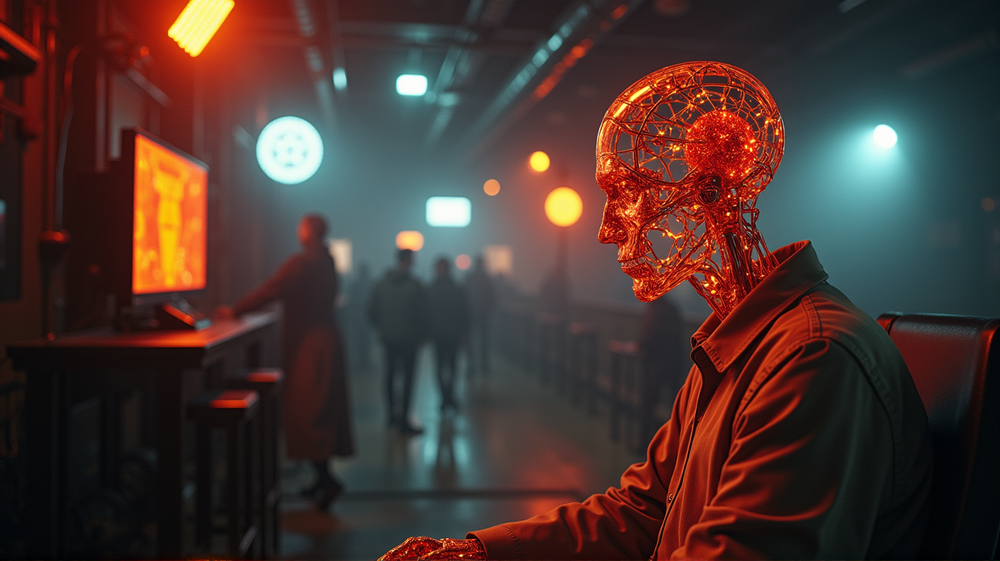In the grand tapestry of cinematic history, where tales of imagination take form, a new player has arrived on the scene—artificial intelligence. At the forefront of this transformative moment, Janet Yang, the President of the Academy of Motion Picture Arts and Sciences, has made a compelling call. During her appearance at the National Association of Broadcasters Show in Las Vegas, Yang underscored the crucial need to preserve what she affectionately termed “human authorship.”
A Cautious Optimism in the AI Era
“Our industry thrives on creativity that is inherently human,” Yang remarked, her words anchoring a room filled with anticipation and debate. “We need the human behind the AI.” Her optimism was palpable as she described a future where technology and human genius coexist symbiotically, promising new realms of storytelling without forsaking the soul of cinematic art.
The Academy at a Crossroads
The Academy, venerable and diverse with its 19 branches, represents the myriad roles in front of and behind the camera. Yang acknowledged that there are as many perspectives on AI as there are stars on the Hollywood Walk of Fame. Yet, she sees this diversity as a strength, a backbone that will guide the industry through the murky waters of technological change. “As one can imagine, there are a lot of different points of view on AI,” she noted, highlighting the dialogues that veer between innovation and tradition.
Engineering, Creativity, and AI
Addressing an audience rich in engineering expertise, Yang highlighted the importance of dialogue between creative minds and technical wizards. She believes this interplay is where the magic happens—a blending of talents that can propel the industry forward while honoring the age-old art of storytelling. Her message was clear: the engine of Hollywood’s future must be fueled by human emotion and creativity, even as it embraces the power of AI.
A Vision for the Future
As the film and television industry stands on the cusp of unprecedented change, leaders like Janet Yang advocate for a future where human creativity and machine learning walk hand in hand. Her words resonate with those who fear a loss of originality in the quest for efficiency and highlight the potential for technology to augment, rather than replace, the artist’s touch.
“In this evolving landscape,” Yang continues, “it’s about finding that pathway where technology enhances our storytelling without overshadowing the storytellers themselves.” Her vision serves as a beacon, guiding the realm of cinema toward a nuanced future where human authorship is neither compromised nor diminished.
According to IMDb, the debate over AI’s role in filmmaking is just beginning, with advocates on all sides working fervently to shape the narratives of tomorrow. Janet Yang’s stance, though cautiously optimistic, offers a hopeful perspective for those cherishing the emotive power of the human touch in Hollywood’s ever-changing scene.













